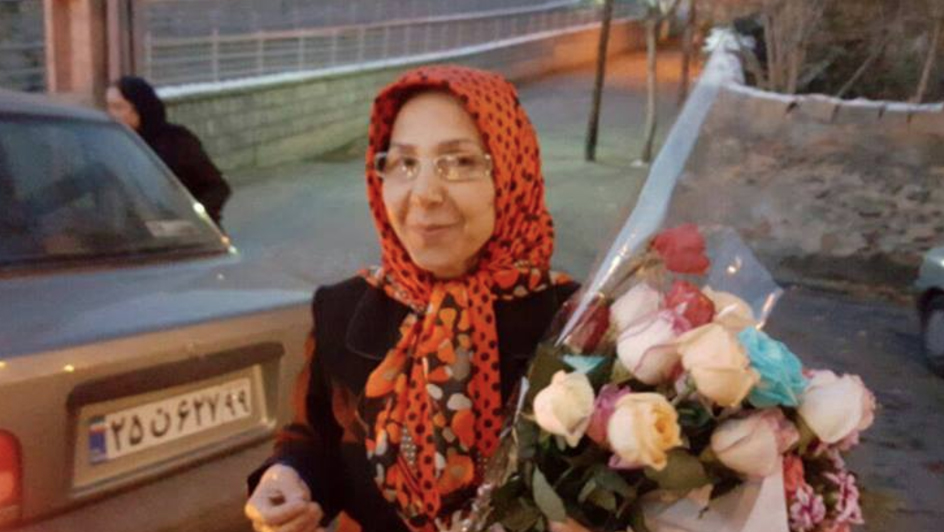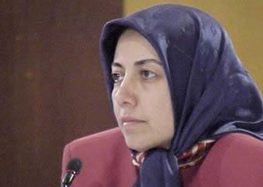Sedigheh Moradi Freed from Prison after Serving Five Years “for Nothing”

Appeals Court Throws Away Conviction
“The judge looked at my file and ordered my unconditional release. It didn’t even take 10 minutes,” said Sedigheh Moradi who was released from Evin Prison on November 23 after Branch 54 of the Appeals Court threw away her conviction.
“I hadn’t done anything. I was held in prison for all these years only because I was imprisoned in the 1980s. Even the Appeal Court judge said there was nothing in my file,” added Moradi in an interview with the International Campaign for Human Rights in Iran.
Moradi, 56, served more than five years of a 10-year prison sentence for allegedly “waging armed rebellion against the Islamic Republic by sympathizing with the Mojahedin-e Khalgh Organization (MEK).”
“On the day of my initial trial, presided by Judge [Mohammad] Moghisseh of Branch 28 of the Revolutionary Court, Mr. Majid Pouryousef was present. He was in charge of getting [television] interviews from [political] prisoners. He told me in court that I had refused to give an interview when I was imprisoned in the 1980s and now I must give one. I said I did my time in prison and I haven’t been involved in any particular activities. Why should I give an interview? Then I was charged with ‘waging armed rebellion’ for supporting the Mojahedin-e Khalgh and given 10 years in prison. Only because I didn’t agree to give a [televised] interview,” Moradi told the Campaign.
Iran has a documented history of routinely forcing prisoners to “confess” and then broadcasting those “confessions” on state TV. Such broadcasts are used to defame political detainees and as evidence to convict them in court.
Moradi added: “Now I’m out but I feel I’m still in the Women’s Ward in Evin Prison. There are three other political prisoners there who have the same exact case as mine. Now that they let me go free, their cases should also be reviewed and they should go free, too. Maryam Akbari-Monfared, Reyhaneh Haj Ebrahim [Dabbagh] and Behnaz Zakeri have all asked for judicial reviews and they had been accepted. Maryam has three girls. Behnaz Zakeri is sick and can’t tolerate prison conditions. I hope their cases will be reviewed as soon as possible and they will all go free.”
Moradi was first arrested and briefly detained in 1981 as an MEK sympathizer in her high school in Tehran. Four years later she was again arrested in connection with the MEK and spent four years in prison.
“When my wife was arrested in 2011, she was not engaged in any [political] activities. She was a housewife and only socialized with her cellmates from the 1980s and with their families,” Moradi’s husband Mehdi Khavas said in an interview with the Campaign earlier this month after the Supreme Court agreed to refer her case for review.
“We have a daughter who was 13 when her mother was arrested,” Khavas added. “For the past five years their only contact has been weekly visits behind a glass barrier and occasional face-to-face visitations. My wife has not been allowed to use the phone [to contact us] and has been denied furlough. This is a cruel form of punishment.”

